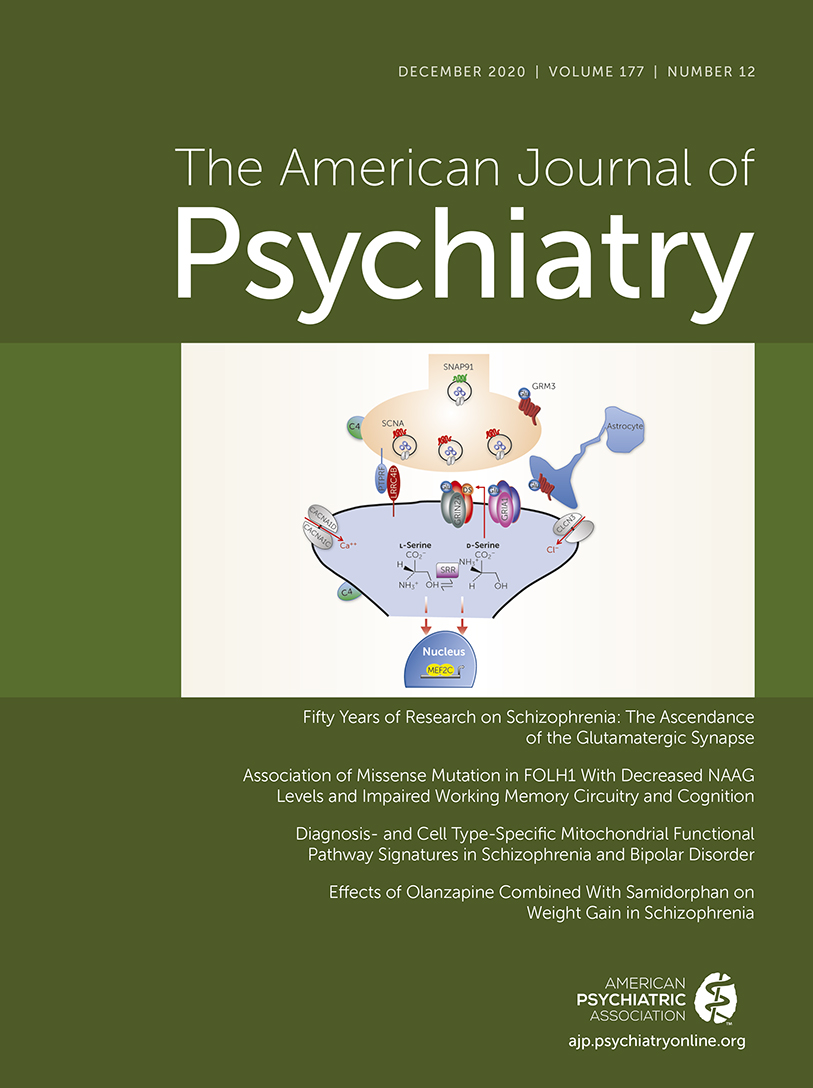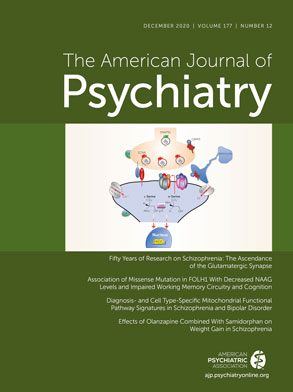T
o the E
ditor: The robust and enlightening longitudinal study by Rimvall et al. (
1), published in the April 2020 issue of the
Journal, demonstrated that children with “psychotic experiences,” as measured by the Schedule for Affective Disorders and Schizophrenia for School-Age Children–Present and Lifetime Version (K-SADS-PL), at age 11 were three times more likely to receive psychotropic medication or be diagnosed with neurodevelopmental or emotional disorders (though not psychotic disorders) within 5 years compared with children without these experiences. We understand the authors to mean that there are certain forms of experience that, as the authors write, are “common in childhood” and “within the range of normal development” that can predict future nonpsychotic diagnoses and indicate a “transdiagnostic vulnerability for diagnosed psychopathology.” However, there are some questions about the phenomenological nature of these experiences, which we now consider.
If a form of experience is both common and developmentally normal, how can it be thought to be an indicator for “underlying vulnerability … of psychopathology”? This suggests a logical difficulty. Surely any indicator for the developmentally nonnormal ought not itself be deemed developmentally normal; to do so would suggest a violation of noncontradiction. Only if phenomena captured under “psychotic experiences” are heterogenous can we reasonably say that some are within the range of normal development while others are aberrant and portend pathological outcomes.
We submit that “psychotic-like experiences” suggest distress but that “different [psychotic-like experience] subtypes appear to be maladaptive in different ways and to indicate varying levels of risk of psychosis and other severe mental disorders[;] it is, we believe, misleading to define [psychotic-like experiences] as a homogenous entity” (
2).
This is probably one reason for the immense difficulty in parsing the literature showing different prevalences of psychotic experiences by ethnicity, even given socioeconomic findings. We suggest that psychotic-like experiences are mediated by various biological, cultural, cognitive, and hermeneutic means, which would make them phenomenologically and physiologically disparate.
The final consideration is methodological. The assessment used to screen for psychotic experiences appears to have been an early version of the K-SADS-PL, with initial reliability and validity data cited (
3). However, in that validation study, active psychosis was an exclusion criterion, and psychotic experiences were not reported. Lastly, newer, expanded versions of the K-SADS-PL may yield different results given the detailed expansion of the psychosis section.
In summary, we suggest that:
1. Common and developmentally normal experiences cannot, by definition, be indicative of underlying diatheses for psychopathology.
2. Psychotic-like experiences can constitute nonspecific, heterogenous markers of distress.
3. The content and discriminant validity of the K-SADS-PL for psychotic symptom constructs must be shown to assert confidently the facticity of psychotic experiences. The same is true for the newer version of the instrument, as well.

